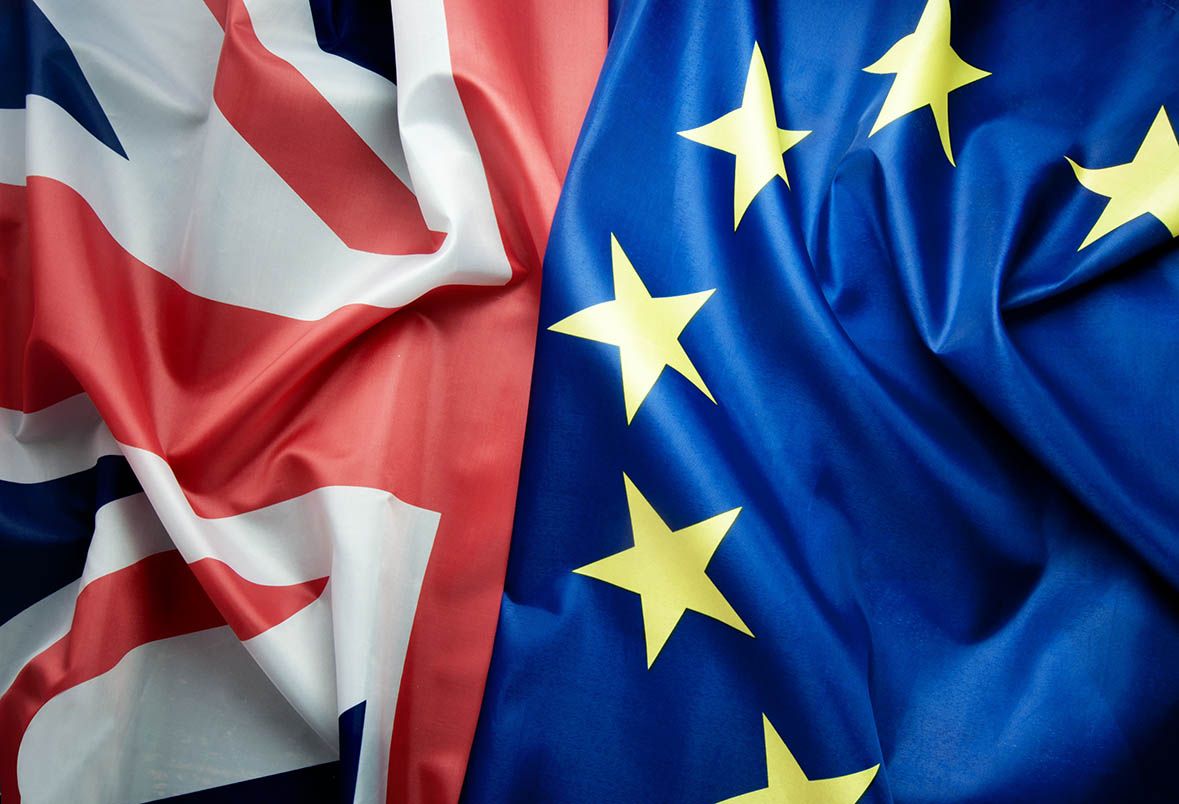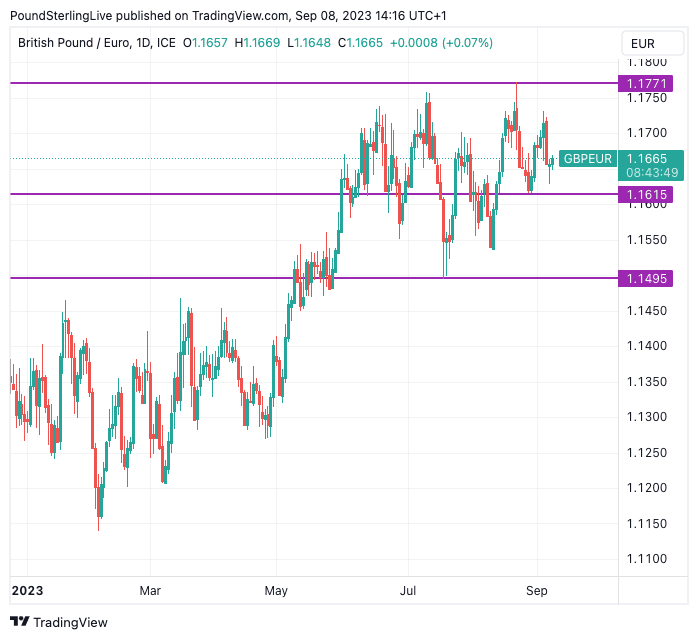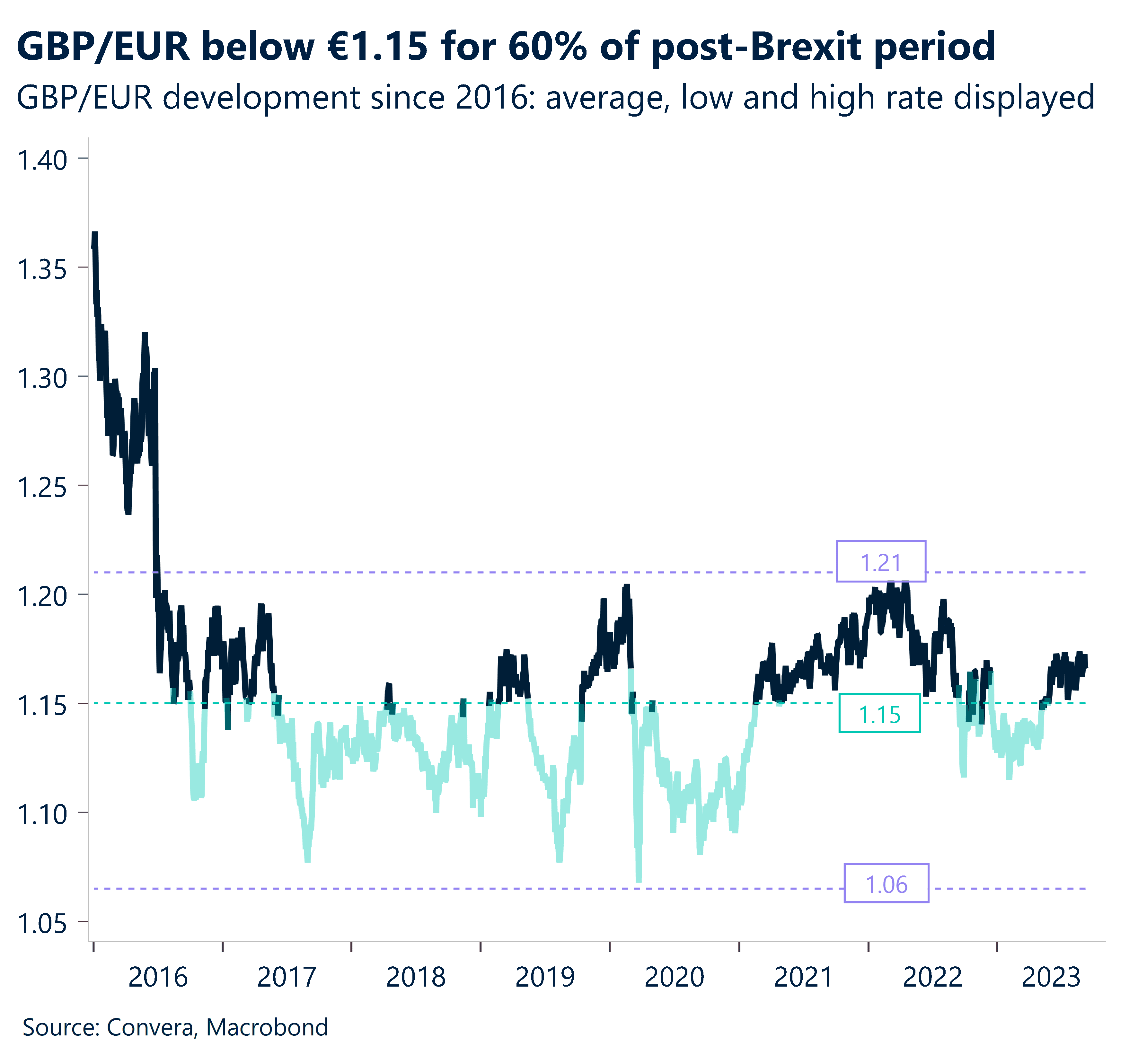GBP/EUR Week Ahead Forecast: Pressured, Wage Figures and ECB Eyed
- Written by: Gary Howes
- GBPEUR back under pressure
- But respects a tight range
- Downside tests possible over coming days
- UK wage data dominates domestic calendar
- ECB rate decision eyed Thursday

Image © Adobe Images
The Pound to Euro exchange rate (GBPEUR) risks slipping towards the bottom of its recent range over the coming days if UK wage data comes in below expectations and the European Central Bank (ECB) hits the right notes on Thursday.
Pound Sterling ultimately failed to hold levels above €1.17 last week - as we warned would likely be the case in our previous week ahead forecast - and the subsequent pullback opens the door to a potential test of near-term support levels.
The first area of support is located near 1.1615, but failure here opens the door to a potential test of 1.15, a level last seen in mid-July.
Above: GBP/EUR at daily intervals.
The chart above confirms GBPEUR retains a remarkably stable feel, having been moving within a well-defined range since May, a helpful development for those looking to plan international payments.
But the pair does appear to be engaged in a random walk within these boundaries, ensuring short-term directional predictions are difficult.
When pressed to call a breakout, the trends of 2023 suggest the odds for an upside break outweigh the risks of a downside break, although the fundamental backdrop will require some notable shifts either in favour of Sterling or to the detriment of the broader Euro.
"GBP/EUR has slipped back towards €1.16 from above €1.17 but remains over 1% above its long-term averages such as its 5-year average near €1.15," says George Vessey, a currency analyst at Convera, the international payments company.
Vessey notes that since the Brexit vote in 2016 GBPEUR has spent nearly 60% of its time below the key level of 1.17 and that in the month of September, GBPEUR has, on average, depreciated 0.75%.
"So we wouldn't be too surprised to see an extended decline in the currency pair in the short-term," he adds.
Compare Currency Exchange Rates
Find out how much you could save on your international transfer
Estimated saving compared to high street banks:
£2,500.00
Free • No obligation • Takes 2 minutes
The calendar interest in the UK this week comes from the labour market report, due Tuesday at 07:00, where the key number to watch will be earnings.
The market expects the average earnings + bonus to read at 8.2%, a figure that is ultimately consistent with high inflationary levels in the UK and which the Bank of England would like to see come lower.
The Bank signalled last week it was close to ending its interest rate hiking cycle, a message that would be afforded some credibility were the headline wage numbers to undershoot expectations.
The Pound fell in the wake of Bank of England Governor Andrew Bailey's message to UK lawmakers last Wednesday that the top in rates was close because the Bank expected inflation to fall sharply over the coming months.
The Pound would therefore likely fall again if the data supported his message.
Image courtesy of Convera.
A report from Oxford Economics last week warned their bespoke modelling pointed to an upside surprise in the data, which would put us on alert for a potential bounce in the Pound on any strong readings.
Yet, Friday's REC report revealed the UK's labour market was loosening as employer demand for employees fell at the fastest rate since 2020 in August. At the same time, the number of job seekers had risen, leading to lower wage offers.
"We expect the jobs report to show some loosening in conditions with a rise in the unemployment rate to 4.3%," says Philip Shaw, Economist at Investec.
The market consensus also looks for the ONS to report the unemployment rate rose to 4.3% in July from 4.2% in June.

Image © Adobe Stock
This meanwhile promises to be a pivotal week for the Euro which faces an ECB decision on Thursday.
The consensus is for no change to be announced by the central bank, but the guidance is almost certainly likely to be of greater importance to the Euro than the final decision.
This is because the market is currently placing minimal weight on where interest rates peak, instead the focus is on how long interest rates can be sustained at that peak level.
This means the Euro can fall even if the ECB surprises with an interest rate hike but the market believes the hike will ultimately be reversed sooner given the economic growth slowdown.
A decision to keep rates on hold could meanwhile push back the timing of that first interest rate cut, ultimately supporting the Euro.
The Euro has come under pressure over recent days after Eurozone economic data undershot expectations and suggested the region's economy is starting to struggle, hardly a fundamental source of support for the currency regardless of what the ECB says.
"The EUR's recent fall from grace reflects growing stagflation fears in the Eurozone as well as worries about the global growth outlook. Such fears have eroded the credibility of the ECB’s hawkish message, weighed on
European real rates & yields and thus added to the EUR’s real rate disadvantage across the board," says Valentin Marinov, Head of G10 FX Strategy at Crédit Agricole.
Should the Euro come under pressure against the Dollar and other currencies then the Pound-Euro exchange rate should be able to successfully defend itself against major weakness, even if Pound Sterling's period of outperformance is potentially ending.
Compare Currency Exchange Rates
Find out how much you could save on your international transfer
Estimated saving compared to high street banks:
£2,500.00
Free • No obligation • Takes 2 minutes






